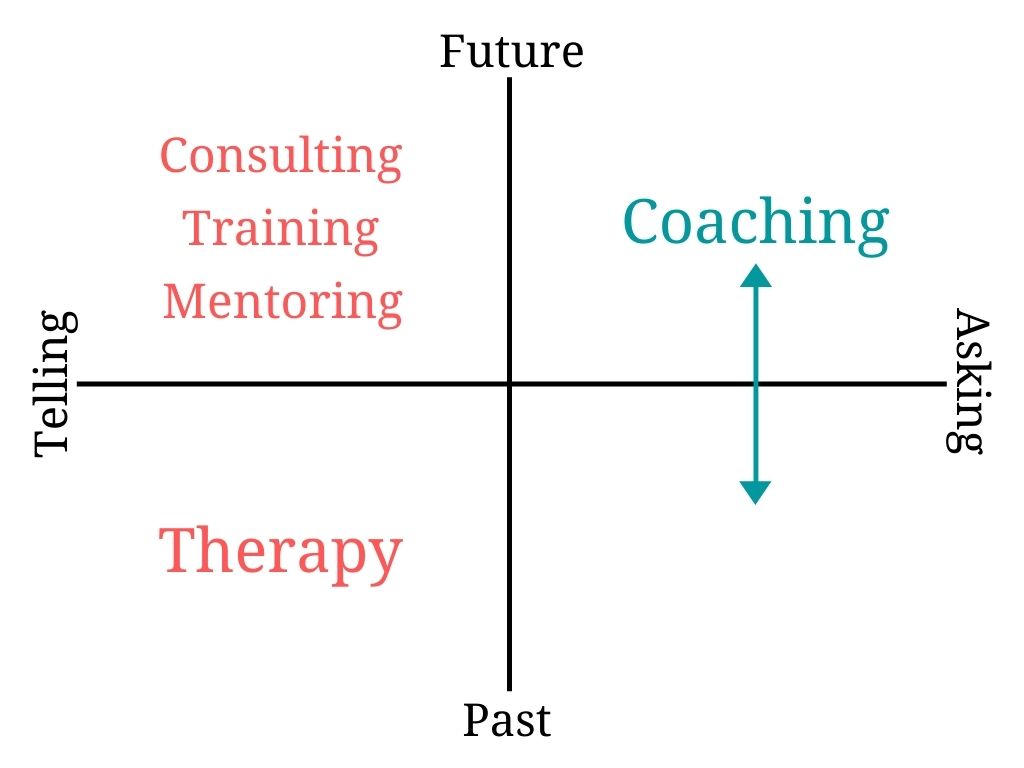
The lines between coaching, consulting, therapy (and other professional services) get blurred often because they all focus on providing guidance to the client, just in different ways. The distinctions between these services center around a few things: what the client’s objective is, if that objective is focused on the past or the future, and how they want to reach that goal.
The diagram above categorizes these service professions into quadrants based on two main differentiators: past vs. future and telling vs. asking.
As you can see, in therapy, the client is told what their past means so that they can understand present behaviors. The focus is not on taking action because the client needs to first get to the root of what is keeping them stuck before they can utilize this information to implement change.
In consulting, training, and mentoring/advising, the client pays the professional to tell them a solution/answer to the issue they’re facing so they can implement it for the future. The client generally does not want to devise a solution for themself, but rather, they wish to rely on the professional to be a subject matter expert and offer their opinion on how the client’s situation should be addressed.
What differentiates coaching: the process
Alternatively, in coaching, the primary focus is on asking the client questions to help them shift their perspective and devise new possibilities for their future. Sometimes, the coach will ask questions related to the client’s past in order to better understand the context from which the client is speaking from. It is important to note that the coach only does this to obtain information that is already understood and accepted by the client. The coach is simply using this knowledge to get a clear and whole picture of how the client sees or observes their situation so that they can then ask the right questions to help the client shift their mindset/perspective.
The key to figuring out what type of guidance you need is asking yourself a few questions:
- Are you trying to understand your past and how it affects your present situation/behavior? If so, you likely need therapy.
- Are you looking for an answer about a specific issue or need help in a particular department? Then, you probably need to hire a consultant or trainer, or, you may need to seek out a mentor.
- Do you want to make a change in a situation you’re stuck in, but you’re not sure how? Find yourself a coach!
If you’re interested in learning more about coaching and how it could benefit you, please contact me at any time.

Hi, I’m Anais – a Business & Leadership coach for service-based small business owners and leaders. I help business owners like you develop effective communication skills, dependable systems & processes, and a transparent team culture so you can reclaim the freedom and time you need to drive your business’ success. If you’re looking to go from merely surviving to THRIVING in your business, then let’s talk. Learn more about how we can work together here.
